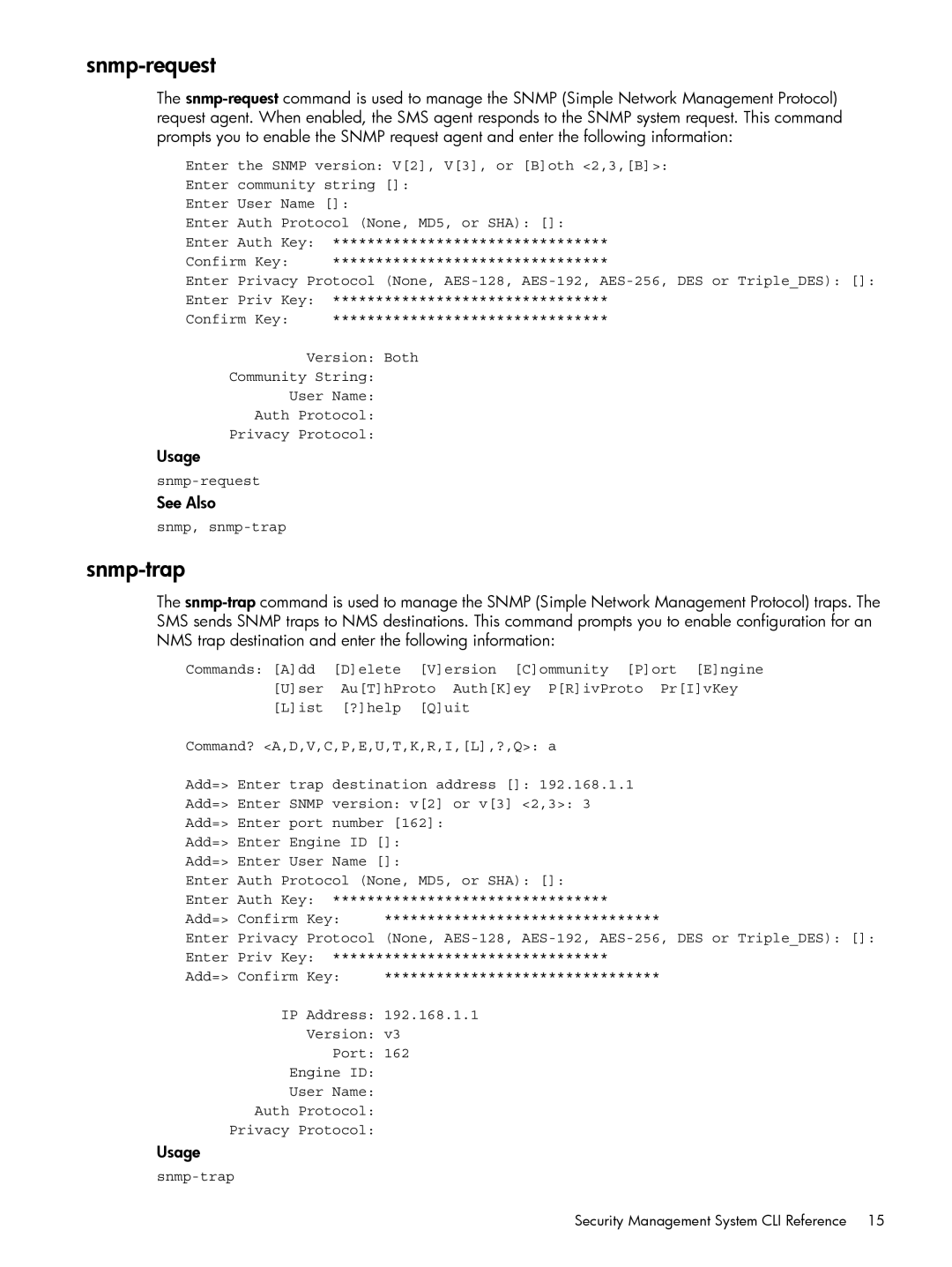snmp-request
The
Enter the SNMP version: V[2], V[3], or [B]oth <2,3,[B]>:
Enter community | string []: | |
Enter User Name | []: | |
Enter Auth | Protocol (None, MD5, or SHA): []: | |
Enter Auth | Key: | ******************************** |
Confirm Key: | ******************************** | |
Enter Privacy Protocol (None,
Enter Priv Key: ********************************
Confirm Key: ********************************
Version: Both
Community String:
User Name:
Auth Protocol:
Privacy Protocol:
Usage
See Also
snmp,
snmp-trap
The
Commands: [A]dd [D]elete [V]ersion [C]ommunity [P]ort [E]ngine [U]ser Au[T]hProto Auth[K]ey P[R]ivProto Pr[I]vKey [L]ist [?]help [Q]uit
Command? <A,D,V,C,P,E,U,T,K,R,I,[L],?,Q>: a
Add=> Enter trap destination address []: 192.168.1.1
Add=> Enter SNMP version: v[2] or v[3] <2,3>: 3
Add=> Enter port number [162]:
Add=> Enter Engine ID []:
Add=> Enter User Name []:
Enter Auth Protocol (None, MD5, or SHA): []:
Enter Auth Key: ********************************
Add=> Confirm Key: ********************************
Enter Privacy Protocol (None,
Enter Priv Key: ********************************
Add=> Confirm Key: ********************************
IP Address: 192.168.1.1
Version: v3
Port: 162
Engine ID:
User Name:
Auth Protocol:
Privacy Protocol:
Usage
Security Management System CLI Reference 15
